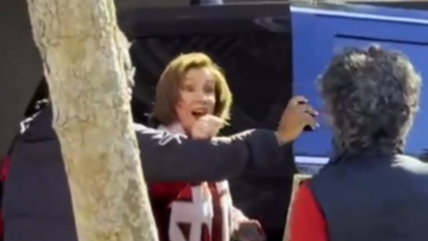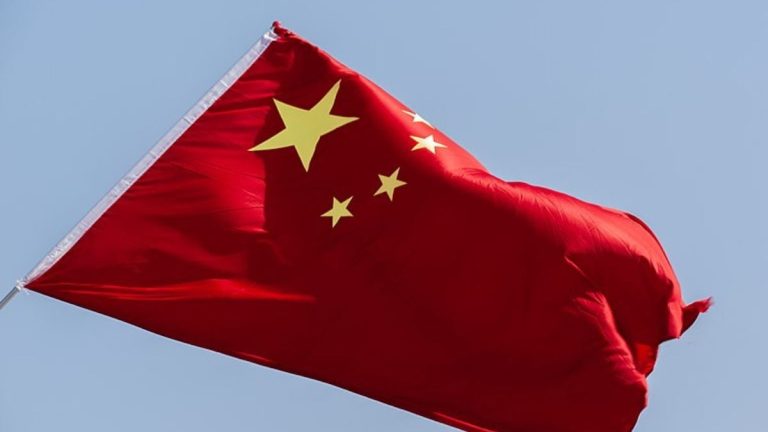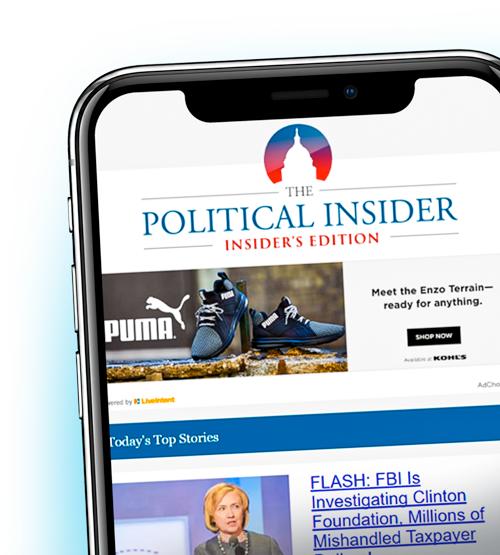opinion

By Chris Fenton for RealClearPolitics
In the dynamic landscape of global entertainment, Beijing's influence on Hollywood has long been a topic of heated debate. While box office power has waned in the Chinese market, giving a breath of creative freedom to our filmmakers, there is a new and more widespread form of influence on Hollywood and beyond: TikTok.
Beijing may have lost influence in the theatrical market, but it has made up for it with an overwhelming social media presence that has become an epidemic, not just in Hollywood but across the United States. In fact, the chairman of the Congressional Select Committee on China, Rep. Mike Gallagher (R-Wis.), accurately describes TikTok as “digital fentanyl” and has been campaigning aggressively to ban the social media app.

As a media executive and storyteller attuned to the complex dance between creativity, commerce, and geopolitics, I have witnessed Beijing's influence on Hollywood's forms of storytelling. TikTok, a platform deeply rooted in the fabric of American youth culture, is at the forefront of this shift.
It's not just a social networking app; It is a powerful tool for influence, information, data collection, commerce and creativity. A network that has far surpassed traditional broadcast networks in terms of its reach and influence on American youth. However, unfortunately for the well-being of our great nation, TikTok is controlled by a malicious government in a non-allied nation.
Here in Hollywood, the talk is no longer about market access and box office numbers within the People's Republic of China. That golden goose was cooked. Instead, it's about the same platforms we use to create, promote, and share content here in the United States and elsewhere. When TikTok is mentioned in those discussions, China inevitably comes up. After all, TikTok is a platform owned by a Chinese company, operates under Beijing's authority and oversight, and is under intense scrutiny by Washington as a result.
The app provides Beijing the ability to understand, control, and influence Americans beyond just Hollywood content. In fact, the platform is even more harmful in how it shapes the opinions and viewpoints of adults under 30, or in other words, future generations of Americans.

According to Pew Research, a third of people under 30 rely on TikTok solely for news, and Beijing could stifle, amplify or outright censor what the app distributes as “news.” Yes, many of TikTok's lobbyists, PR people, and lawyers go around and argue the opposite, but the platform has been caught contradicting that many times. It is almost certain that Beijing is the decision-maker.
Understanding this fact, our trans-Pacific competitor's nefarious activities now appear seriously detrimental to American interests, especially in an election year. Beijing will almost certainly use TikTok to study voter data and control the flow of information and news, in an attempt to dictate the outcome of the 2024 election.
In December, The New York Times reported, “Pundits are calling next year a ‘TikTok election’ because of the video app’s amplified power and influence. TikTok… has increasingly become a news source for Millennials and Gen Z, who will be a powerful segment of the electorate.” .
Worse still, research from Securing Democracy found that 30% of major party candidates in Senate races used TikTok accounts as part of their campaign strategies in 2022, and the number is likely higher today.
Logic points to the obvious. TikTok should be banned. And before those who oppose such bans even try to invoke the “free speech/First Amendment” argument, there is a simple and effective countermeasure. In the United States, the Federal Communications Commission prohibits the control of American broadcast networks by hostile foreign governments and entities affiliated with them.

The ban is based on the firm belief that we must protect our national narrative and cultural sovereignty from countries that seek to weaken or divide us. The question then is why should TikTok be an exception? Why would we allow a foreign-owned entity such deep access to the psyche of our youth, the views of our voters, and the heart of our creative industries, especially since Beijing believes a global app isn't even worth accessing in its own country?
Blocking an app is straightforward, takes precedence, and, frankly, absolutely necessary. This is not a call for censorship, nor is it a condemnation of the vibrant creativity that TikTok has fostered among millions of users. It is a call for consistency in our policies and the protection of our national interests.
Blocking may seem inconvenient, but instead it comes with minimal cost and significant benefits. It will return Hollywood to American-owned and controlled platforms, ensuring that our content and the means of its distribution remain free from the shadows of foreign manipulation. It is also a nice and long-awaited measure of reciprocity in the bilateral relationship. Beijing has tipped the scales toward its domestic players by stifling or banning foreign competitors within the PRC. Why not do the same to let Instagram, Twitter, or another innovative American social media platform seize the market vacated by TikTok?
Some might argue that TikTok is too entrenched to be uprooted, and that banning it would be too great a loss for users who have built communities on its platform. But let's not underestimate the resilience and ingenuity of our creative community. Hollywood has always been at the forefront of change, pioneering new ways to tell stories and connect with audiences. In the absence of TikTok, other platforms will emerge, fostering an ecosystem that will thrive under the values and freedoms we hold so dear.

Let's seize this opportunity. Let's preserve the creative freedoms that have made Hollywood a beacon of storytelling around the world and, most importantly, protect the integrity of America's elections and advance America's technological prowess.
It's time to ban TikTok. Either that, or we should allow Beijing to take full control of our broadcast networks, too.
Chris Fenton is a media executive, producer, and author of Feed the Dragon: Inside the Trillion-Dollar Dilemma Facing Hollywood, the NBA, and American Business. An informal advisor to the Congressional Select Committee on China and a member of the Asian American Institute, the Council on Foreign Relations, the National Committee on US-China Relations, and the Third Way Research Foundation, he founded his own firm, Fenton International Business Strategy. and communications to help the private sector and Washington deal with America's complex relationship with non-allied nations. Follow him on XTheDragonFeeder.
Reprinted with permission from RealClearWire.


